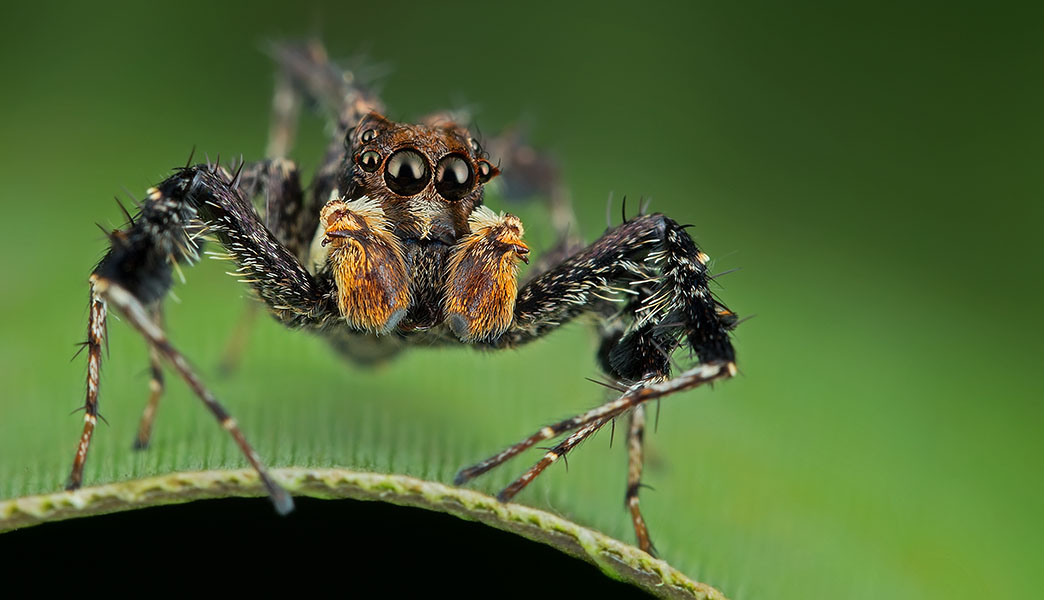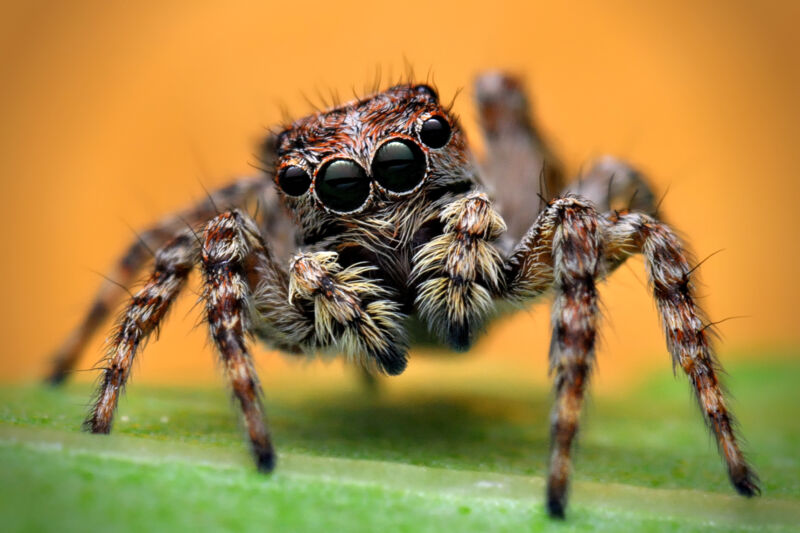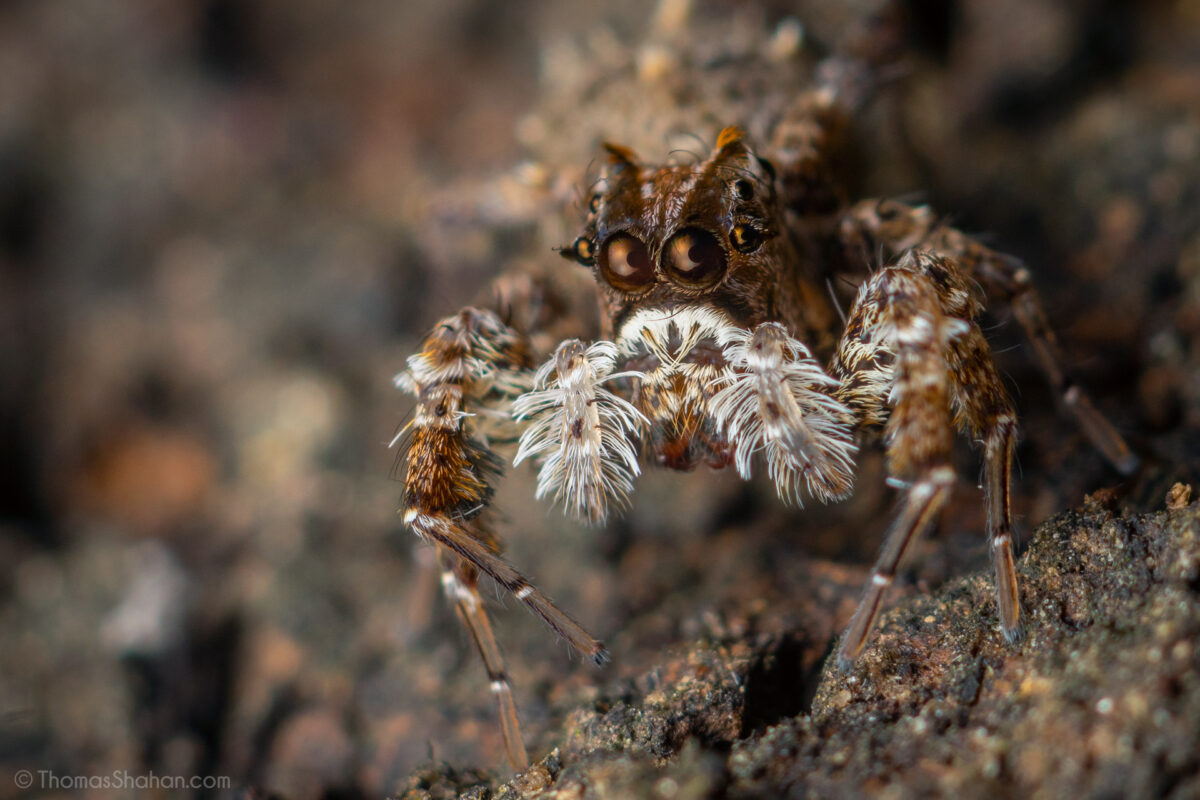Spider Smarts: Surprising Intelligence Unveiled! | Discover
Can a creature so often maligned and misunderstood possess a level of intelligence that rivals our expectations? The answer, surprisingly, is a resounding yes, particularly when we examine the remarkable cognitive abilities of spiders. The conventional wisdom often links intelligence directly to brain size, yet the world of arachnids challenges this simplistic notion, revealing a sophisticated array of problem-solving skills and adaptive behaviors that have captivated scientists and challenged long-held assumptions.
The prevailing belief that spiders operate solely on instinct is being overturned by mounting evidence. Jumping spiders, in particular, belonging to the family Salticidae, are increasingly recognized as among the most intelligent spiders on the planet. These agile hunters, far from being simple automatons, navigate their environments with a calculated precision, demonstrating an impressive capacity for learning, planning, and adapting to changing circumstances. To understand the scope of their abilities requires a deeper dive into their world.
Consider the fascinating research conducted on Portia fimbriata, a genus of jumping spiders known for their exceptional predatory skills and cunning tactics. These spiders, found in various regions across the globe, including Africa, Asia, and Australia, are masters of deception, often employing camouflage and mimicry to lure their prey. Their strategies are complex, involving intricate detours and calculated approaches tailored to the specific species they hunt. The intelligence of Portia is not merely about innate responses; it involves the ability to assess a situation, devise a plan, and execute it with remarkable efficiency. Their cognitive abilities are, in essence, a form of practical problem-solving, an essential trait for survival in a challenging world.
- Alice Rosenblum Trending Content Leaks Find Out More
- Ellen Pompeos Siblings Meet Her Family Beyond Greys Anatomy
The central nervous system of a spider, while structured differently from that of vertebrates, is no less capable of supporting complex behaviors. It's composed of two nerve cell clusters, known as ganglia, which act as processing centers, connecting to nerves that lead to the muscles and sensory organs. This system allows spiders to handle all the intricate functions necessary for hunting and navigating their environments. Furthermore, spiders are not limited to automatic responses. They exhibit cognitive abilities that allow them to learn from experience and adjust their behaviors accordingly. For instance, they may modify their web designs based on the type of prey they are trying to catch or the specific environmental conditions.
The study of spider intelligence isn't just about observing their behavior in controlled laboratory settings. Researchers are also exploring the intricate workings of their minds, trying to understand the mechanisms that drive their remarkable abilities. Some studies have focused on the learning capabilities of ghost spiders, which have been successfully trained to associate positive reinforcement with the smell of vanilla. Other research centers on orb-weaver spiders, which are known to construct their webs in accordance with the types of prey they want to capture. These findings suggest a degree of cognitive flexibility that transcends the simplistic view of spiders as purely instinctive creatures. The reality, it seems, is far more complex and intriguing.
| Feature | Details |
|---|---|
| Common Name | Jumping Spider ( Portia fimbriata) |
| Family | Salticidae |
| Habitat | Found in Africa, Asia, and Australia, in diverse environments ranging from forests to deserts. |
| Notable Traits | Exceptional predatory skills, camouflage, mimicry, ability to learn and plan attacks, and intelligent problem-solving. |
| Intelligence Focus | Cognition, specifically learning, planning, and adaptation in hunting strategies. |
| Research Relevance | Studies on Portia fimbriata and other jumping spiders are helping to understand the spectrum of intelligence in the invertebrate world. |
| Key Behavior | Develop unique hunting strategies based on prey types, which showcases their ability to plan and adapt. |
| Primary Diet | Other spiders and insects |
| Sensory Capabilities | Sharp eyesight for precise targeting and navigation. |
| Academic Source Link | NCBI - A review of jumping spider (Salticidae) behavior and ecology |
There's a long-standing assumption that intelligence correlates with brain size. Larger brains, as a rule of thumb, tend to provide more capacity for complex mental functions. However, spiders present an interesting case, possessing cognitive abilities that seem disproportionate to their small size. The work of scientists such as Nathan Morehouse at the University of Cincinnati highlights the surprising intelligence displayed by certain spider species, particularly jumping spiders.
The cognitive feats of spiders extend beyond mere hunting strategies. Researchers have also investigated the ability of spiders to adapt to their environment. One intriguing aspect is the manipulation of web designs based on the type of animals they want to catch or environmental factors. This level of behavioral flexibility suggests a degree of intelligence that goes beyond simple instinct, pointing towards sophisticated cognitive processes.
The study of spider intelligence isn't without controversy. In recent years, claims of fabricated evidence of complex spider behavior have surfaced, emphasizing the need for careful scrutiny and rigorous research methodologies within the scientific community. This incident serves as a reminder of the importance of maintaining scientific integrity and upholding the highest standards of evidence-based research.
Understanding the cognitive world of spiders offers more than just fascinating insights into the natural world. It provides a unique perspective on how intelligence manifests itself in various forms, expanding our definition of what it means to be intelligent. While spiders might not engage in abstract thought or ethical deliberations in the way humans do, their remarkable capacity for problem-solving and adaptation demonstrates a level of mental sophistication that deserves our attention. The key is to appreciate that spider intelligence isn't about abstractions or moral choices; it's about the fundamental aspects of survival: killing and eating other life forms.
Frequently Asked Questions (FAQs) about spiders often include inquiries like, "Are spiders afraid of humans?", "Do spiders bond with humans?", "Will a spider remember me?", "Do spiders know if I'm scared of them?", and "Can spiders hear us talking?" While some answers remain speculative due to limited research, the exploration of spider cognition continues to unveil new and fascinating insights.
The behavior of jumping spiders, for example, has been subject of extensive research. They can solve puzzles and anticipate the actions of their prey, and they are generally considered to be smarter than most other invertebrates. The sharpest eyesight and the most impressive smarts among jumping spiders belong to the genus Portia. Portia fimbriata is known to plan attacks on other spiders, involving complex detours and strategies tailored to the prey's species. These intricate behaviors provide further evidence for the high level of spider intelligence.
Spiders, with their intricate webs and calculated hunting strategies, are an example of a different kind of intelligence. Their capacity to plan, learn, and adapt challenges conventional notions of intelligence, prompting a reassessment of our assumptions about the animal kingdom. The exploration of spider cognition reveals that intelligence is not solely about brain size, but also about the ability to solve problems and thrive in a complex world.



Detail Author:
- Name : Robin Roberts
- Username : mayert.jovanny
- Email : gerlach.camden@bradtke.org
- Birthdate : 1977-01-13
- Address : 390 Nitzsche Crossing Klingville, OK 27381-4926
- Phone : +12695800346
- Company : Jacobs, Torp and Corwin
- Job : Precision Lens Grinders and Polisher
- Bio : Possimus eius a eum doloremque pariatur consequatur. Facilis architecto quisquam corrupti. Incidunt et velit unde et sapiente. Provident cupiditate atque sequi eius ipsum delectus.
Socials
instagram:
- url : https://instagram.com/aracely.beahan
- username : aracely.beahan
- bio : Necessitatibus sit atque error sint explicabo dignissimos autem. Earum tempore quia qui error.
- followers : 6772
- following : 2316
facebook:
- url : https://facebook.com/aracely7603
- username : aracely7603
- bio : Perferendis adipisci reiciendis voluptatem. Enim omnis iure ipsa.
- followers : 1448
- following : 1606